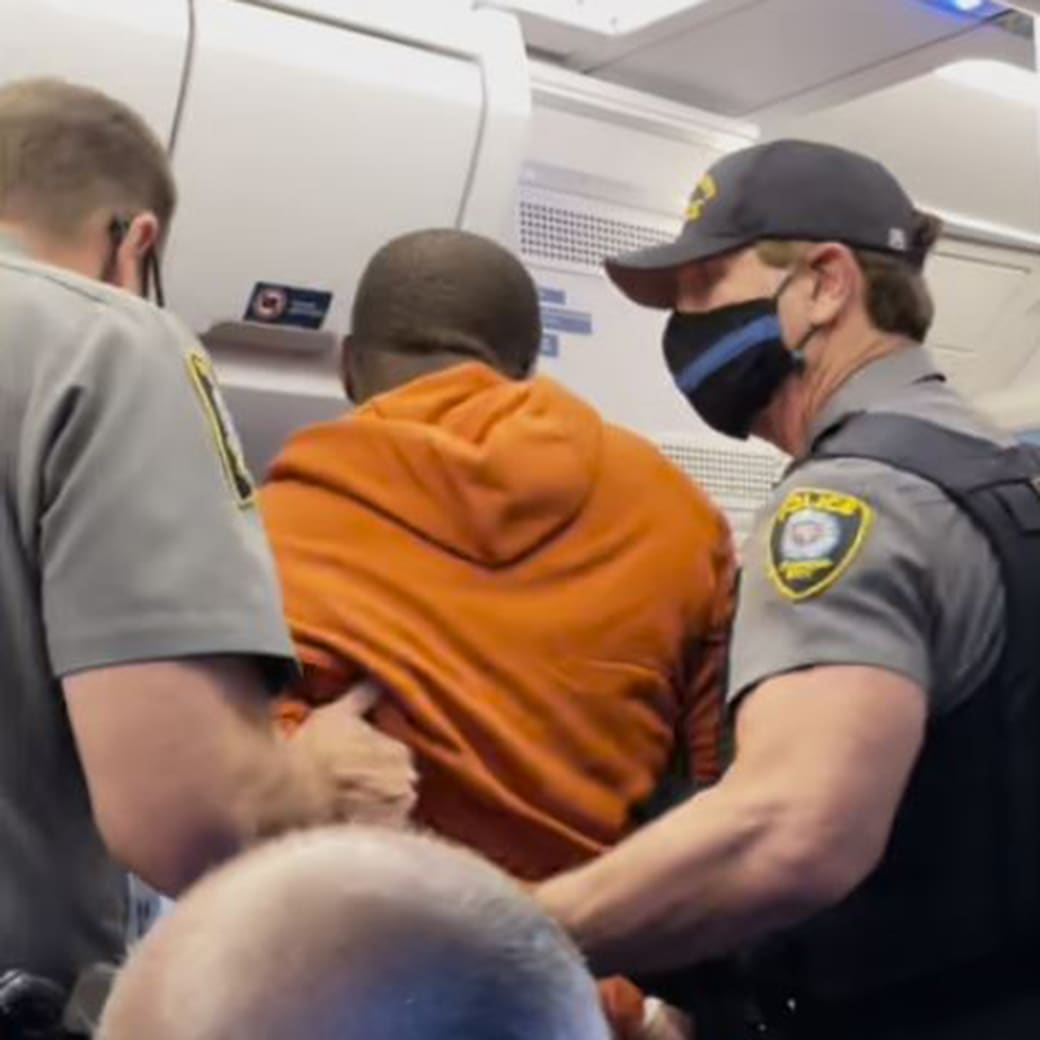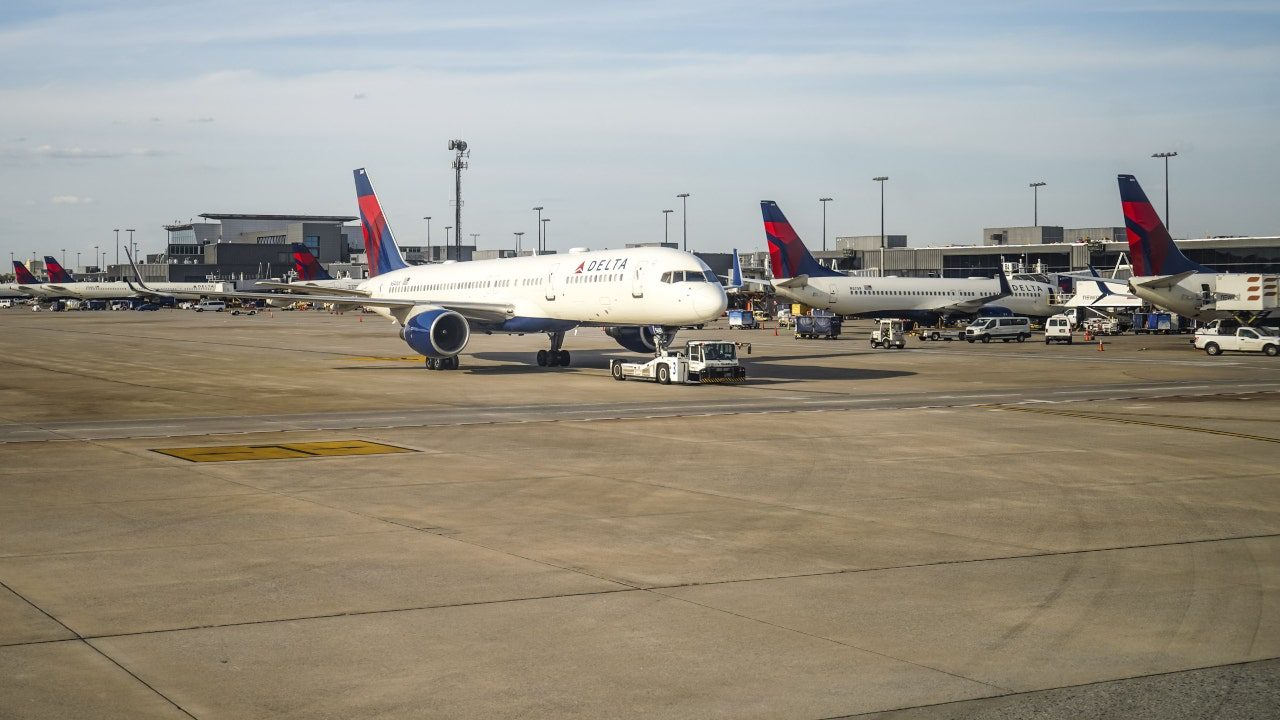Delta Flight Diverted: What You Need To Know
How often do seemingly routine flights take an unexpected turn, leaving passengers and crew facing unforeseen circumstances? The skies, once a symbol of seamless travel, are increasingly witnessing diversions, cancellations, and emergency landings, painting a complex picture of the modern aviation landscape.
The incidents, ranging from mechanical failures and severe weather to unruly passengers and even spoiled food, highlight the multifaceted challenges faced by airlines and the critical decisions made in the air. A look at recent events reveals a pattern of disruption that demands closer scrutiny. Let's delve into the details of these recent diversions and cancellations, piecing together the factors contributing to these unexpected changes in flight plans.
| Incident Type | Date | Origin Airport | Destination Airport (Scheduled) | Diversion Airport | Reason |
|---|---|---|---|---|---|
| Flight Diversion | Thursday Evening | Los Cabos International Airport | Atlanta | Montgomery, Alabama | Severe Weather |
| Flight Diversion | Wednesday | Detroit | Amsterdam | New York's Kennedy Airport | Spoiled Food |
| Flight Diversion | Tuesday, around 11 p.m. | Detroit | Amsterdam | New York | Spoiled Food |
| Flight Diversion | Saturday Afternoon | New York City | Orlando | Raleigh | Odor in Cabin |
| Flight Diversion | January 1, 2025 | New York John F. Kennedy | Orlando, Florida | RDU International Airport | Unspecified |
| Flight Diversion | Saturday Night | Los Angeles | Sydney, Australia | Los Angeles, California | Smoke Detected in Galley |
| Flight Return | Thursday | Salt Lake City | Honolulu | Salt Lake City | Engine Performance Issue |
| Flight Diversion | Unspecified | Amsterdam | Detroit | New York's JFK Airport | Unspecified Issue |
| Flight Diversion | December 10 | Amsterdam | Detroit | Goose Bay, Newfoundland | Mechanical Issue |
| Flight Diversion | Wednesday | Detroit | Amsterdam | New York's Kennedy Airport | Spoiled Food |
| Flight Diversion | Unspecified | Michigan | Florida | Atlanta | Unruly Passenger |
| Flight Diversion | Unspecified | Cincinnati (CVG) | Las Vegas (LAS) | Kansas City (MCI) | Unruly Customer |
| Flight Diversion | Sunday Evening | Minnesota | Amsterdam | Twin Cities | Unspecified |
| Flight Diversion | Unspecified | Detroit Metropolitan Wayne County Airport | Amsterdam | John F. Kennedy International Airport | Unspecified |
| Flight Diversion | Unspecified | Los Angeles | Atlanta | Oklahoma City | Onboard Medical Issue |
The first in our series of disruptions began with Delta flight 1828. Departing from Los Cabos International Airport late on Thursday evening, the flight was headed for Atlanta but was abruptly rerouted to Montgomery, Alabama. The culprit? Severe weather, a frequent disruptor of air travel, forcing the pilot to prioritize safety.
In a separate incident, a Delta flight originating from Detroit and bound for Amsterdam was forced to make an unscheduled stop at New York's Kennedy Airport on Wednesday. The reason? Passengers were reportedly served spoiled food, prompting the diversion to ensure passenger health and safety.
Adding to the list of challenges, another Delta flight, this time from Detroit to Amsterdam, faced the same fate, also diverted to New York's Kennedy Airport, reportedly due to the distribution of spoiled food. This particular flight, which took off from Detroit around 11 p.m. on Tuesday, landed in New York at 4 a.m. This reiterates the potential for unexpected situations, even in the midst of long-haul flights.
The ripple effects of these diversions extended beyond the immediate inconveniences. Two Delta flights found themselves diverted to Montgomery. Upon landing in Montgomery, the conditions in Atlanta hadn't improved, leading to crew duty time limits being reached. Consequently, the flights were essentially canceled. However, a further complication arose: the airport in question lacks a U.S. Customs & Border Protection (CBP) facility, rendering it impossible to disembark the arriving international passengers. This highlighted the logistical complexities that can accompany unscheduled landings, particularly when international travel is involved.
On Saturday afternoon, a Delta flight traveling from New York City to Orlando was diverted to Raleigh. The reason for this unplanned stop was an odor detected within the cabin, a situation that necessitated immediate action to ensure the wellbeing of those on board.
Looking forward, on January 1, 2025, Delta Air Lines flight DL2090, which took off from New York's John F. Kennedy International Airport, was rerouted to RDU International Airport. The flight, destined for Orlando, Florida, was diverted safely, marking another instance where circumstances dictated a change of course.
On Saturday night, a Delta Air Lines flight en route to Sydney, Australia, was diverted back to Los Angeles, California. The cause? Smoke was detected in the galley, a significant safety concern that necessitated an immediate return to the point of origin to resolve the issue.
Adding further to the list of unscheduled events, a Delta flight heading to Honolulu was forced to return to Salt Lake City. This decision, made on Thursday, was prompted by onboard crews observing an issue with engine performance. The safety of the passengers and crew was, undoubtedly, the primary consideration.
Delta flight 136, which was en route to Detroit from Amsterdam, was also diverted to New York's JFK airport. A spokesperson confirmed the diversion due to an unspecified issue that necessitated the unscheduled stop.
On December 10th, Delta flight 135, operating from Amsterdam to Detroit, experienced a mechanical issue, resulting in a diversion to Goose Bay, Newfoundland. This diversion was described as being undertaken "out of an abundance of caution," highlighting the airline's commitment to prioritizing passenger safety.
Another instance of food-related disruption was reported: a Delta flight from Detroit to Amsterdam was diverted to New York's Kennedy Airport on Wednesday, the same day as an earlier incident, again due to the service of spoiled food.
Further impacting air travel, an American Airlines flight, carrying nearly 200 passengers and 15 crew members, was diverted and escorted by Italian fighter jets due to a security concern while en route from New York. While details of the incident remain scarce, the involvement of military aircraft underscores the seriousness of the situation.
Recent events highlight the vulnerability of flight schedules to unforeseen events. For tickets issued before October 28, 2024, and for travel on or after October 28, 2024, a significant delay of more than 120 minutes in the originally scheduled departure or arrival time allows passengers to cancel their ticket and request a refund. This demonstrates the financial implications of flight disruptions and the airlines' efforts to address the inconvenience caused by delays.
A recent Delta flight, identified as flight 2915 from Cincinnati (CVG) to Las Vegas (LAS) on December 23, was diverted to Kansas City (MCI). The reason for this alteration to the flight plan was the removal of an unruly customer, highlighting the impact that passenger behavior can have on the overall flight experience.
In another event that demonstrates the unpredictable nature of air travel, a Delta flight bound for Amsterdam from Minnesota was forced to turn back shortly after taking off. This event added to the growing list of incidents that highlighted the vulnerability of flight schedules to unforeseen circumstances.
Delta flight 135, was diverted to Goose Bay airport "out of an abundance of caution". The airline, in a statement, cited the mechanical issue as the primary reason for the change in course.
Furthermore, there are other operational factors that come into play during such diversions, as the airline noted that "crew duty times were impacted due to weather and runway conditions at the goose bay airport causing the airport to suspend operations."
The incidents above paint a comprehensive picture of what can go wrong mid-flight. The causes of diversion and cancellation are complex and varied, ranging from issues within the aircraft to external factors, like weather and passenger behavior.
A Delta flight from Detroit to Amsterdam was diverted to New York's Kennedy Airport on Wednesday, once again due to the issue of spoiled food served to passengers. This is a trend. The repeated diversion caused by this single issue is noteworthy.
The flight, identified as DL43, was en route to Sydney and took off a little after 9 p.m., according to flightaware. It landed back at LAX about 30 minutes later, as smoke was detected.
A Delta Air Lines flight from Michigan to Florida was diverted to Atlanta on Wednesday because of an incident involving an unruly passenger, the airline confirmed. This highlights the effect of passenger actions on flight plans and the safety of the cabin.
Delta flight 2090 was diverted to RDU due to an odor in the cabin. This underlines the importance of air quality and prompt action when irregularities arise within the aircraft.
The 277 passengers on board delta flight 136 heading from Detroit Metropolitan Wayne County Airport to Amsterdam Tuesday night were diverted to John F. Kennedy International Airport after it was.
A Delta Airlines flight bound for Portland was diverted to Yakima airport earlier today after high winds in western Washington made landing unsafe.
Lastly, an Oklahoma City (AP) a Delta Air Lines flight from Los Angeles to Atlanta resumed its flight Friday after being diverted to Oklahoma City a day earlier. The airline said in a statement that the flight was diverted "out of an abundance of caution due to an onboard medical issue."


